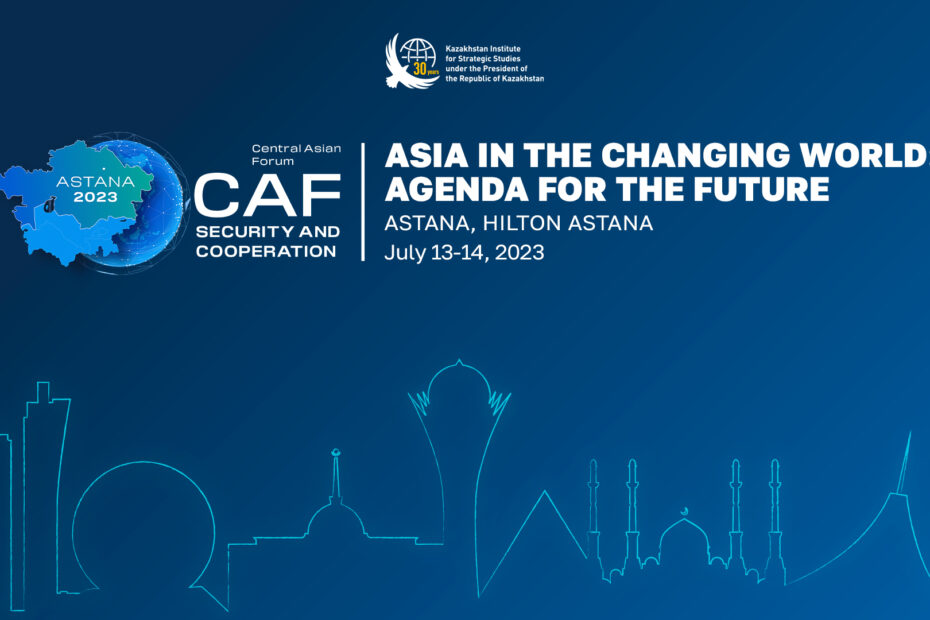Famous intellectuals from 25 countries of the world will be gathered by the Kazakhstan Institute for Strategic Studies under the President of the Republic of Kazakhstan (KazISS) in Astana at the Central Asian Security and Cooperation Forum.
On July 13 and 14, 2023, the Central Asian Forum on the theme “Asia in the Changing World: Agenda for the Future” will be held. It is intended to become part of the global ecosystem of the most authoritative annual venues, such as the Munich Security Conference, IISS-Shangri La Dialogue, Raisina Dialogue, Primakov Readings and the Astana International Forum. The Forum will demonstrate new formats of dialogue and interaction of prominent thinkers and political scientists from the world’s leading research centers. The Forum will also be co-organized by the Ministry of Foreign Affairs.
The world is on the verge of complex geopolitical shifts. Against the backdrop of growing globalization, there is a parallel increase in new formats of regionalization. All this is reflected in the growing competition for establishing new rules and mechanisms for international relations, including the security architecture. Asia has become a key center of political and geo-economic attraction in this context. That is why the theme of the Forum on security and cooperation will be “Asia in the Changing World: Agenda for the Future”.
Themes of discussions: “Asia’s Global Security: Future Perspectives”, “The New Continental Interconnectedness of Eurasia: the Middle Corridor and the Dialogue of Integrations”, “Global competition for innovation and brains: new technologies, artificial intelligence, and human capital”, etc. Representatives of Japan, China, the USA, India, Singapore, Russia, Turkey and other countries are expected to participate.
Speakers include Vladimir Voronkov, Under-Secretary-General of the United Nations Counter-Terrorism Office, Terhi Hakala, EU Special Representative for Central Asia, Narushige Michishita, Vice President of the National Graduate Institute of Policy Studies of Japan, Mohammad Hassan Sheikh Al Islami, Deputy Minister of Foreign Affairs, President of the Institute of Political and International Studies of the Iranian Foreign Ministry, Mehran Kamrava, Professor of Public Policy at Georgetown University in Qatar, Head of Iranian Studies Unit at the Arab Center for Research and Policy Studies and many others.


